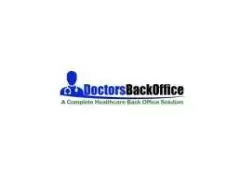The Importance of Efficient Claim Submission Processes.
Description
In the intricate ecosystem of healthcare reimbursement, claim submission stands as a critical juncture where providers seek rightful compensation for services rendered. As healthcare delivery evolves, embracing efficient claim submission methods, particularly through electronic claims, becomes imperative. This article explores the significance of streamlined claim submission processes, the role of electronic claims in enhancing efficiency, and strategies for optimizing reimbursement in the modern healthcare landscape.
Claim submission serves as the pivotal step in the revenue cycle, where healthcare providers formally request payment from insurance payers for services provided to patients. Traditionally, this process involved cumbersome paperwork, manual data entry, and prolonged wait times for reimbursement. However, with the advent of electronic claims, providers can now transmit billing information swiftly and securely, revolutionizing the reimbursement process.
Electronic claims offer numerous advantages over traditional paper-based submissions, foremost among them being speed and accuracy. By leveraging electronic health record (EHR) systems or practice management software, providers can electronically generate and submit claims to payers with minimal manual intervention. This automation not only accelerates the reimbursement cycle but also reduces the likelihood of errors and omissions, thereby increasing the chances of prompt payment.
Moreover, electronic claims facilitate seamless communication between healthcare providers and payers, fostering greater transparency and efficiency in the claims adjudication process. Real-time electronic transmission allows for instant validation of claim data, enabling payers to identify discrepancies or missing information promptly. This proactive approach reduces the likelihood of claim denials or delays, ultimately expediting reimbursement and improving cash flow for providers.
Another key advantage of electronic claims is the ability to track and monitor claim status in real-time. Providers can easily access electronic portals or interfaces to check the progress of submitted claims, view payment statuses, and identify any outstanding issues requiring attention. This visibility empowers providers to take proactive measures to address claim rejections, resubmit denied claims, or follow up on pending reimbursements, thereby minimizing revenue leakage and maximizing collections.
Furthermore, electronic claims facilitate compliance with regulatory requirements and industry standards governing healthcare billing and reimbursement. Electronic data interchange (EDI) standards, such as HIPAA-mandated formats for electronic transactions, ensure the secure and standardized exchange of healthcare information between providers and payers. By adhering to EDI guidelines, providers can mitigate the risk of non-compliance penalties and maintain integrity in their billing practices.
In addition to enhancing efficiency and compliance, electronic claims offer cost savings and environmental benefits compared to traditional paper-based methods. The reduction in paper usage, postage expenses, and manual labor associated with printing, mailing, and processing paper claims translates into tangible financial savings for healthcare organizations. Moreover, electronic claims support sustainability initiatives by minimizing paper waste and carbon footprint, aligning with broader efforts to promote eco-friendly practices in healthcare.
Despite these compelling advantages, transitioning to electronic claims submission requires strategic planning and investment in technology infrastructure. Healthcare providers must ensure seamless integration between EHR systems, practice management software, and payer portals to facilitate electronic claim submission and processing. Training staff members on electronic billing protocols and troubleshooting common issues is also essential to maximize the benefits of electronic claims adoption.
In conclusion, efficient claim submission processes are integral to optimizing reimbursement and financial sustainability in healthcare. Electronic claims offer a streamlined and cost-effective alternative to traditional paper-based methods, empowering providers to accelerate reimbursement cycles, reduce administrative burden, and enhance overall revenue performance. By embracing electronic claims and leveraging technology-driven solutions, healthcare organizations can navigate the complexities of healthcare reimbursement with greater efficiency and effectiveness, ultimately advancing the delivery of high-quality patient care.
US Address
233 Clear River Pl, Cary, NC 27519
+1 214 628 1717 / +91 866 767 7019






You must log in or register a new account in order to contact the publisher
Useful information
- Avoid scams by acting locally or paying with PayPal
- Never pay with Western Union, Moneygram or other anonymous payment services
- Don't buy or sell outside of your country. Don't accept cashier cheques from outside your country
- This site is never involved in any transaction, and does not handle payments, shipping, guarantee transactions, provide escrow services, or offer "buyer protection" or "seller certification"







